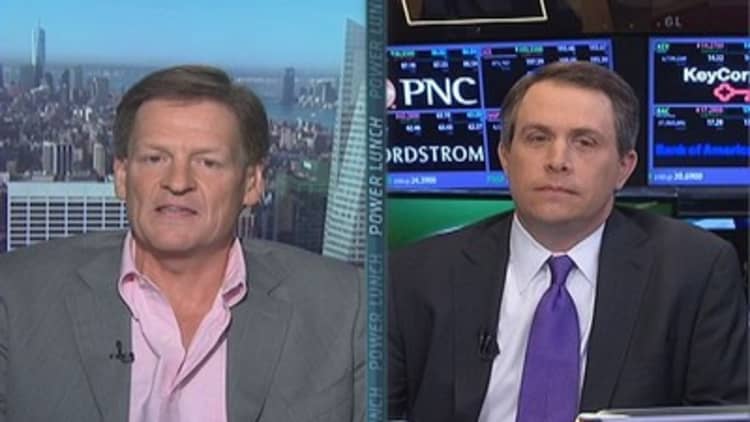IntercontinentalExchange Group will seek to reduce the number of stock order types at the New York Stock Exchange to simplify the market, Chief Executive Jeff Sprecher said, adding the complex structure of U.S. equity markets had spooked investors.
The structure of equity markets has come under increased scrutiny in the past month following the release of Michael Lewis' book "Flash Boys: A Wall Street Revolt," which claims the U.S. stock market is rigged.
Regulators should end the "maker-taker" form of trading that now dominates share transactions in the United States because it creates false liquidity by attracting traders who do not truly want to own shares but instead seek to earn rebates, Sprecher said.
The "maker-taker" model refers to an organized system of rebates that large traders and brokers receive to channel their stock transactions through the NYSE or other established exchanges.
"What's saddening about the U.S. equity market is when I go out and talk to my friends, they do not have confidence in those markets," Sprecher said.
ICE shares sank on Thursday on a higher cost outlook overshadowing the exchange and clearing house operator.
Read More Buffett, Gates and Munger criticize high-frequency trading
Atlanta-based ICE, which owns the parent of the NYSE, forecast operating expenses will jump to $485 million to $495 million in the second quarter from an adjusted $463 million in the first quarter.
The estimate for expenses was in line with expectations, the company said, but looked high to investors. Shares were down 3.8 percent at $194 in midday trading after dropping more than 5 percent in earlier activity.
"The company's updated guidance is disappointing at first glance, with operating expenses moving higher," said Alex Kramm, an executive director for UBS.

Expenses were in focus following ICE's $11 billion acquisition of NYSE Euronext in November. The deal gave ICE an entry into the interest rate futures business through control of Liffe, Europe's No. 2 derivatives market. It also marked the company's first foray into equities, through ownership of the Big Board, and through European stock market operator Euronext.
Since the acquisition, ICE has been planning an IPO for Euronext and a sale of the NYSE Technologies unit to eliminate non-core businesses.
Net income in the first quarter rose to $262 million, or $2.27 a share, from $135 million, or $1.85 a share, a year ago as ICE benefited from the acquisition. Excluding $60 million in costs related to the deal, adjusted earnings were $2.60 a share, beating analysts' expectations for $2.58, according to Thomson Reuters I/B/E/S.
Read More
Revenue increased to $932 million from $352 million a year ago, above expectations for $922.9 million.
"We achieved record revenues and have taken actions that have already allowed us to realize over 40 percent of our expense synergy target relating to the NYSE Euronext acquisition, increasing the efficiency of our operations globally," Chief Financial Officer Scott Hill said.
—CNBC.com with Reuters

